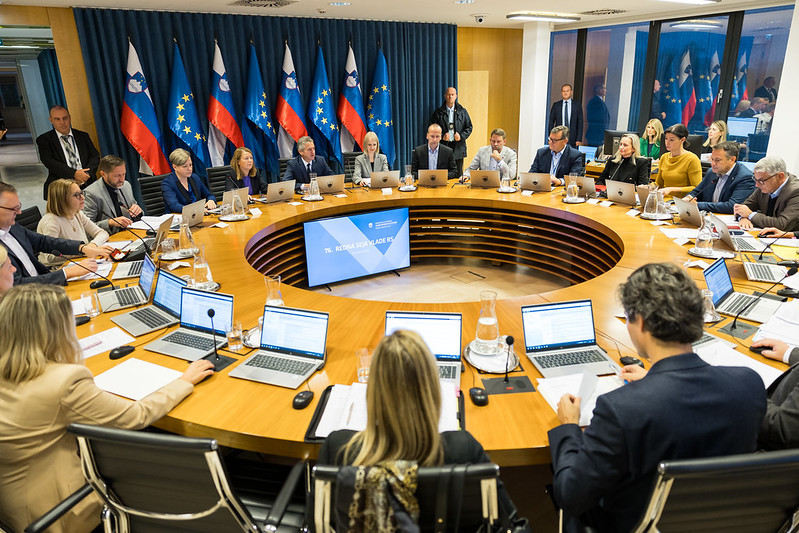83rd regular session of the Government of the Republic of Slovenia
The Energy Act Proposal (EZ-2) introduces a comprehensive reform of the current Energy Act, simplifying various procedures, which will thus become more user-friendly, and adapting the current energy legal framework to the challenges of the green transition. The Energy Act Proposal governs numerous areas, including energy policy management, the energy regulator, energy infrastructure, energy inspection, allocation of incentives for investment in renewable energy sources and efficient energy consumption, management of state-owned capital investments, energy-related crisis situations, and temporary energy price controls, among other issues.
The Government has reallocated EUR 5 million for co-funding radio and television programmes at RTV Slovenija for the Italian and Hungarian ethnic communities.
It has also defined the text of the National Commodity Reserves Act Proposal, which follows the changed situation on the market. The various crises over the past years have shown that the procedures for programming, creating and using commodity reserves and the role of individual authorities in these are overly vague, which prevents the relevant authorities from performing their work efficiently. The new act thus defines these procedures and roles in greater detail. The National Commodity Reserves Act Proposal stipulates the establishment of a public utility for creating, storing, maintaining and using commodity reserves to meet the basic needs of the population, and a public utility for creating, storing, maintaining and using the strategic reserves of oil and oil derivatives.
The current controls that Slovenia reintroduced on the EU internal borders with Croatia and Hungary on 21 October 2023 have been extended by another twelve days – that is, until 21 December 2023. Following the principle of proportionality, the methods and intensity of internal control measures at the internal borders will continue to be target-oriented and focus on preventing terrorism, extremism and cross-border crime. The measures will continue to be performed in such a way that has minimal impact on passengers, the environment, economy and, first and foremost, the lives of people living along the border. In addition, the Slovenian police will continue to carry out joint activities with the police forces in the two neighbouring countries (mixed patrols, joint checks, exchange of information, regular consultations and so on) and strive to maintain close collaboration with them.


